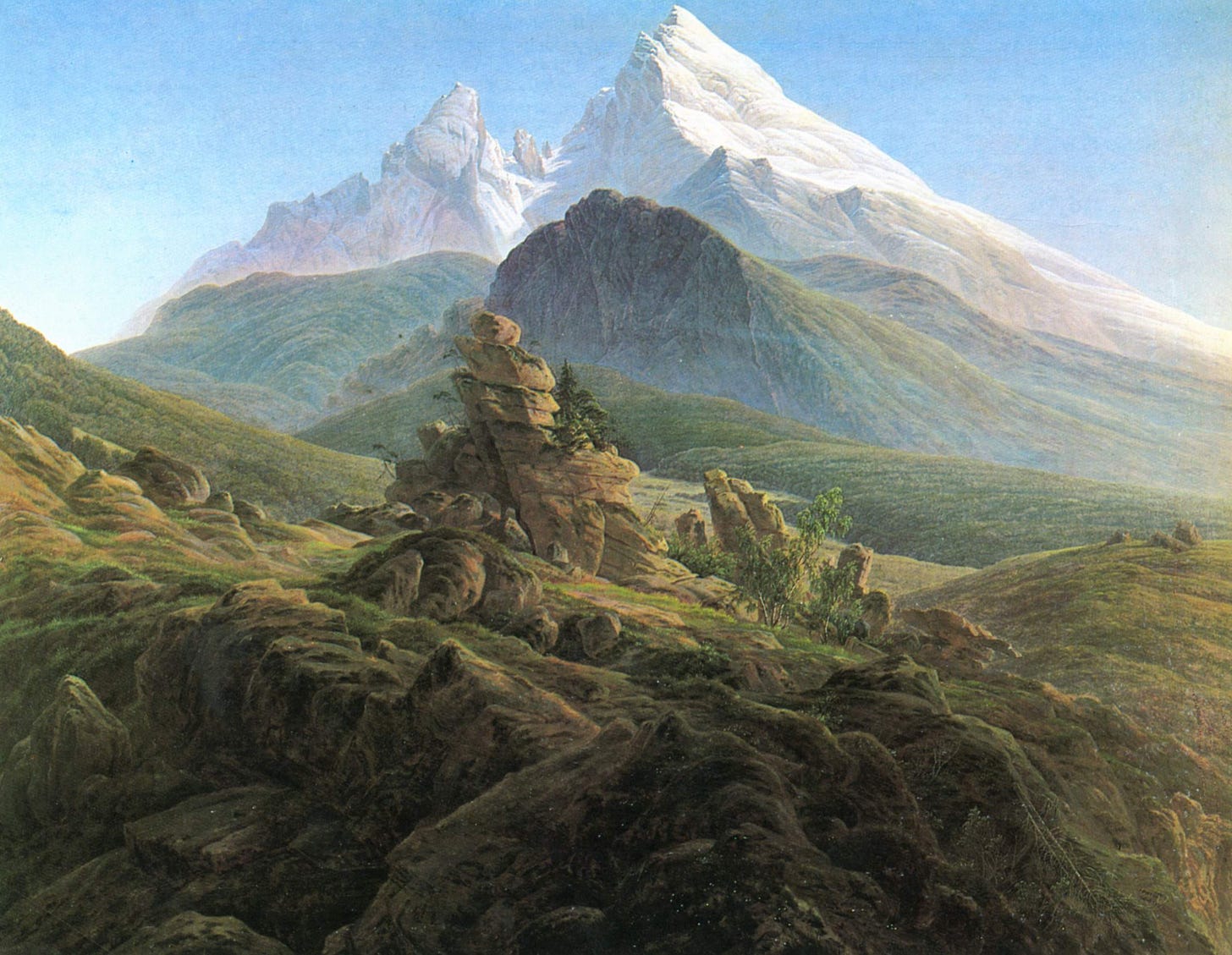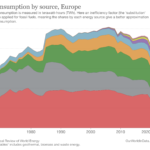Romantic movement vs. Enlightenment / #91


I’ve been for the past few days in the very southeastern part of Germany, at the Berchtesgadener Land visiting a friend (here some pictures I took).
There, in 1824-1825, the German Romantic landscape painter Caspar David Friedrich created The Watzmann (Der Watzmann).
And there, Adolf Hitler, the man who brought the greatest suffering to Europe, spent more time than anywhere else during his time as the Führer of Nazi Germany. Hitler had a vacation home in the Obersalzberg (called the Berghof), and parallel to his stays in the Berghof, Hitler took advantage of the working areas of the “Little Chancellery” in Bischofswiesen to write a total of about 125 laws and regulations.
Some would argue that there is a link between Casper-David Friedrich and Adolf Hitler, between the Romantic movement and the ideology of nationalism, which the Nazis acted out in a particularly horrible way.
One of these people was the historian John Hirst.
When Enlightenment, with its central concepts of reason, science and progress, was in full bloom in France, Romanticism a different movement developed in the late eighteenth and early nineteenth century, especially in Germany.
“That Romantic movement believed in emotions, feelings and passion, which was contrary to Enlightenment,” Hirst wrote in his worth-reading bestseller ‘The Shortest History of Europe‘.
Hirst:
“These German ideas developed in conscious opposition to the French ideas of the Enlightenment. The Germans declared that you cannot talk about man and society in the abstract because humankind is different depending on the country you are in. We are shaped, said the Romantics, by our language and our history; they are embedded in us. So the Germans, having their own history and their own language, are always going to be different from the French. There is no such thing as universal reason, which these intellectuals in French salons believe in. We are Germans and we want to find out about the Germanness of being German. The German Romantics wanted to know what the German warriors were like before they got mixed up with civilization and with Rome and Christianity. They were pulling the Germans away from the mix. They liked these men of the woods, their vigour and vitality, their crudity. They did not want to follow weak intellectuals. They honoured Germans who had lived close to the soil and who knew what being German was all about.”
The Romantics, Hirst concludes, also provided the ideology for nationalism.
“Nationalism proclaims that distinct peoples having their own culture and language must live together and have their own government. It is not enough to work out in the abstract what makes for good government; if the government is not the government of your own people it cannot be a good government. Serbs must live together and have a Serbian government; Croats must live together and have a Croatian government. A country where Serbs and Croats live together will mean that we as Serbs and Croats cannot fully express ourselves. The essence of being Serb will not be able to flower unless we have our own state: this is the ideology of nationalism.”
There is no doubt that the Romantic movement had its advantages. It looked at the people around. Not abstract theory was important, but practical reason.
Again Hirst:
“The answer to the prattle about reason by arrogant French intellectuals was to put on your boots and go hiking. Go to the German people, go to the peasants, record their stories and songs: that is where you will find true Enlightenment.”
Not only when I go hiking in the mountains, but especially there, I feel both movements in my chest: The conviction that science and reason are the most important thing for society, and the slightly hidden wish for traditional beliefs.
But Hirst makes it clear to us that the preservation of tradition and the longing for heimat involves a risk. Namely that we differentiate ourselves from other groups. And that this distinction can make you feel superior.
And he makes also clear to us that we have to live with the fact that two hearts beat in one breast: reason and emotion. “It is our fate to be torn, divided and confused,” Hirst writes in ‘The Shortest History of Europe’. Other civilisations had a single tradition, but “we come from a very mixed parentage and there is no place we can call home.”
sources:
https://en.wikipedia.org/wiki/Berchtesgadener_Land
https://en.wikipedia.org/wiki/Caspar_David_Friedrich
https://en.wikipedia.org/wiki/The_Watzmann
https://en.wikipedia.org/wiki/Berghof_(residence)
https://en.wikipedia.org/wiki/Berchtesgaden_Chancellery_Branch_office
https://en.wikipedia.org/wiki/John_Hirst_(historian)
https://en.wikipedia.org/wiki/Romanticism
Author Profile

-
Founder of the "Good morning Europe blog" and Pixel economist
Guest author for European Liberals for Reform
Johannes' articles are originally written for the “Good morning Europe” blog (www.goodmorningeurope.org) and the Pixel economist (https://thepixeleconomist.substack.com).
We were given permission to publish his articles on the European Liberals for Reform blog.
Latest entries
Post Disclaimer
The opinions expressed by the author of this post do not necessarily represent the opinions and policies of ELfR.





